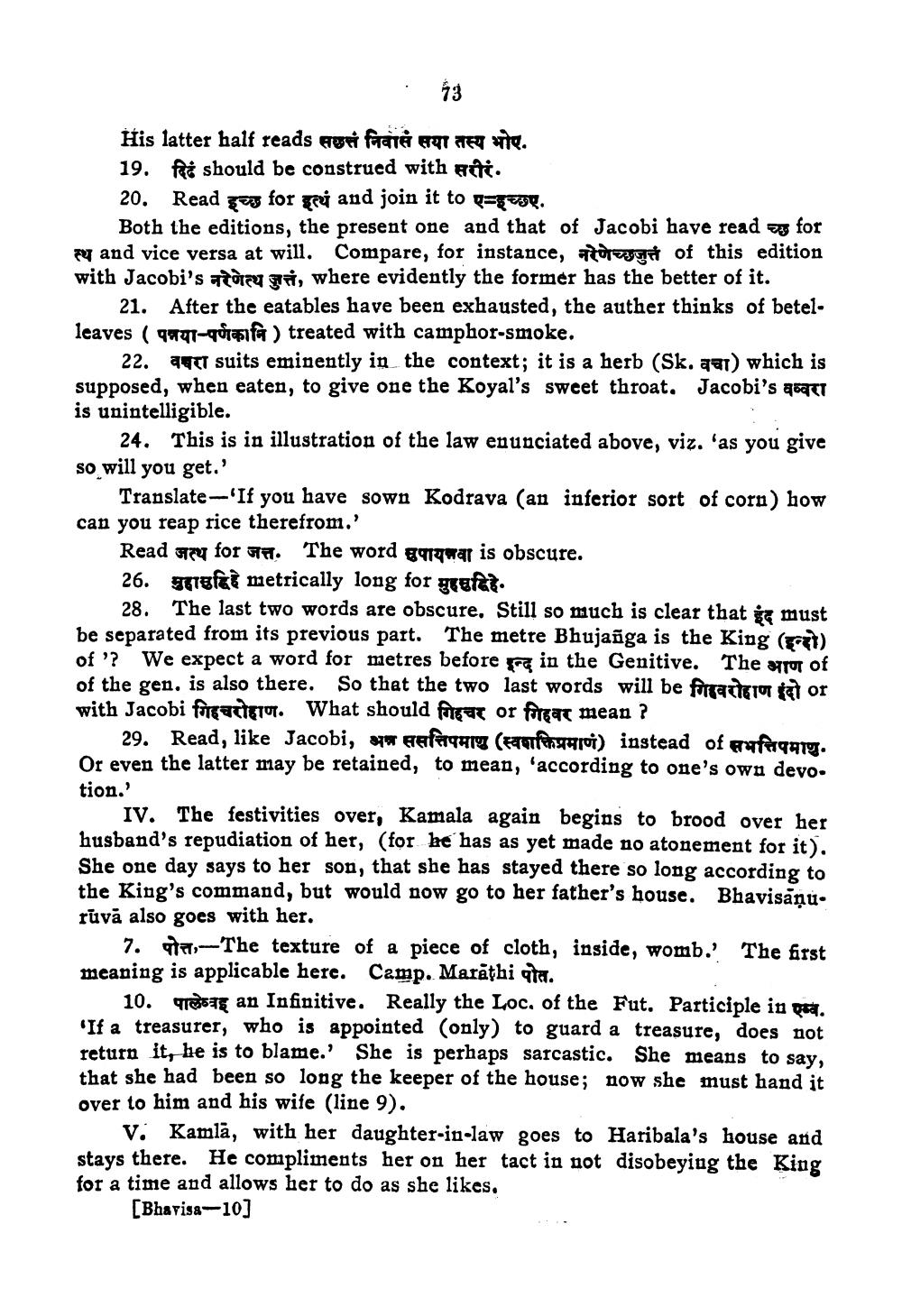________________
13
His latter half reads frei faraTË HYT TCT ante. 19. दिदं should be construed with सरीरं. 20. Read çay for i and join it to gray.
Both the editions, the present one and that of Jacobi have read ay for my and vice versa at will. Compare, for instance, attorner of this edition with Jacobi's TIFY Ti, where evidently the former has the better of it.
21. After the eatables have been exhausted, the auther thinks of betelleaves ( quyi-qafa) treated with camphor-smoke.
22. ET suits eminently in the context; it is a herb (Sk. gar) which is supposed, when eaten, to give one the Koyal's sweet throat, Jacobi's quart is unintelligible.
24. This is in illustration of the law enunciated above, viz. 'as you give so will you get.'
Translate-'If you have sown Kodrava (an inferior sort of corn) how can you reap rice therefrom.'
Read 4 for . The word en war is obscure. 26. Sefal metrically long for grafat.
28. The last two words are obscure. Still so much is clear that gz must be separated from its previous part. The metre Bhujanga is the King (EU) of '? We expect a word for metres before in the Genitive. The prur of
the gen, is also there. So that the two last words will be ficat E10 E1 or with Jacobi गिहचरोहाण. What should गिहचर or गिहवर mean? 29. Read, like Jacobi, pW FAfrohtu (
F r i) instead of fegat. Or even the latter may be retained, to mean, 'according to one's own devo. tion.'
IV. The festivities over, Kamala again begins to brood over her husband's repudiation of her, (for he has as yet made no atonement for it). She one day says to her son, that she has stayed there so long according to the King's command, but would now go to her father's house. Bhavisānu. rūvă also goes with her.
7. 071--The texture of a piece of cloth, inside, womb. The first meaning is applicable here. Camp. Marăghi ata.
10. graag an Infinitive. Really the Loc. of the Fut. Participle in pea. "If a treasurer, who is appointed (only) to guard a treasure, does not return it, he is to blame.' She is perhaps sarcastic. She means to say, that she had been so long the keeper of the house; now she must hand it over to him and his wife (line 9).
V. Kamlā, with her daughter-in-law goes to Haribala's house and stays there. He compliments her on her tact in not disobeying the King for a time and allows her to do as she likes,
[Bhavisa--10]




